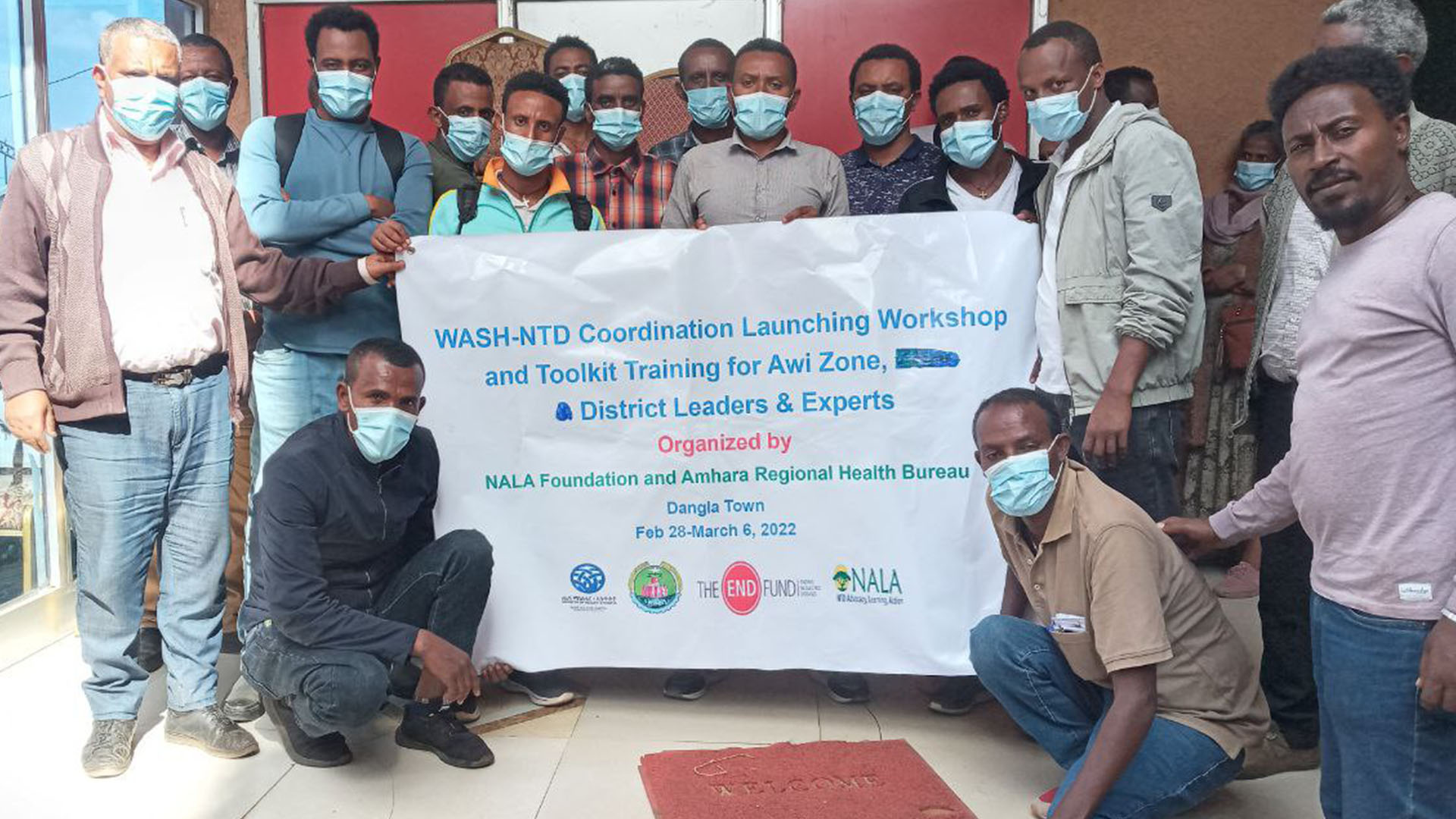“…As result of coordinated work, 31 schools have got water supply system, standard latrines are constructed for 21 schools, the water supply system has been maintained and latrines have been constructed in 4 health centers. Moreover, all MDA campaigns were successfully implemented, community level improved latrines were constructed, latrine slabs were produced, and more open defecation free and model kebeles (villages) have been created …” WASH focal, Shashengo district
Neglected tropical diseases (NTDs) pose a significant public health challenge in Ethiopia, with particularly high prevalence among impoverished communities lacking clean water, sanitation, and hygiene access (WASH). Until recently, the response to NTDs has been the use of preventive chemotherapy, however reinfection rates, due to continued exposure to unsafe WASH, have hindered progress in reaching elimination. For decades, WASH interventions have been largely planned outside of the health sector, with a lack of coordination between the WASH and health sectors resulting in reduced efficacy of interventions and prolonged disease prevalence.
Recognizing the need for a comprehensive approach, the Ethiopian government, in line with the World Health Organization’s (WHO) prioritization of improved coordination, embarked on a comprehensive strategy to address the high rates of NTDs in the country. Following the publication of the WHO’s WASH-NTD toolkit, which contained guidelines for coordination between the WASH and health sectors, Ethiopia was selected as one of four countries to test the toolkit. In 2017, NALA, supported by The END Fund and Sightsavers International, partnered with the Ethiopian Ministry of Health to support the piloting of the project with the development of the district-level toolkit and the cascading of trainings, followed by the national scale-up of the program in Ethiopia.
Interrupted in 2020 by the coronavirus pandemic, NALA launched online WASH-NTD coordination training in place of in-person meetings, enabling the project to reach NGOs and government officials beyond pilot areas. So successful was the online training, that the Ethiopian Ministry of Health requested a second course be designed by NALA for the DHIS2 (District Health Information Software) data system training, which was launched in 2022. To date, over 240 people have enrolled across the two courses with an average passing score of 95%.
Since the piloting of the project in 2018, the toolkit has been implemented in over 400 districts in Ethiopia, across 40 zones, reaching 8 out of 11 regions. Ethiopia’s commitment to multisectoral collaboration has significantly advanced efforts to combat NTDs, with the integration of WASH and health interventions enhancing the effectiveness and sustainability of disease elimination initiatives. The implementation of multisectoral coordination has facilitated joint planning, optimized resource utilization, and fostered informed decision making. As the fight against NTDs continues, Ethiopia’s innovative approach stands as a testament to the power of multisectoral collaboration in achieving transformative public health outcomes.
